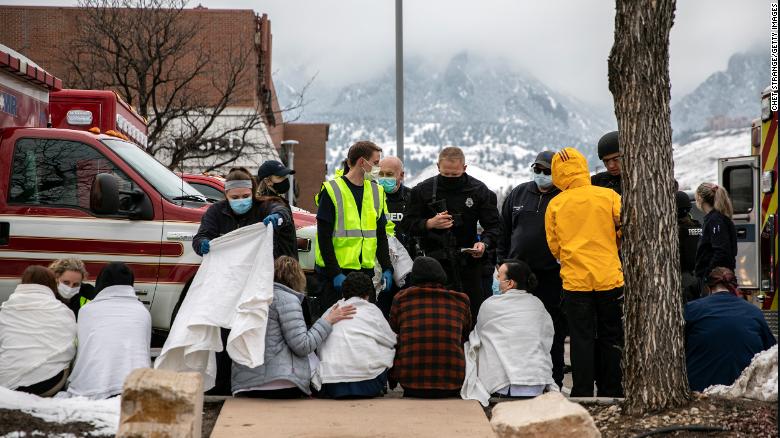

How Our Narratives Fail Us
Mass Shootings and a Culture Without a Conscience
03/25/21
John Stonestreet

There have been two mass shootings in a little over a week, on opposites sides of the country by individuals who, from what we currently know, sit on opposite sides of the ideological spectrum. Though quickly-trotted-out narratives have proven either obviously flimsy or just flat wrong, Americans remain deeply entrenched in their corners and are seeing these issues through those lenses. All the while, yet another set of events reveals a country in moral crisis, with very little helpful guidance from media or from government officials.
Mass shootings continue to be, tragically, a regular feature of American life. Each new attack on innocent children, students, church members, employees, concertgoers, and shoppers hits before we’ve recovered from the last one. May we never become numb to the horror of these crimes.
After each shooting, the fury and passion to “do something” reaches a new level of volume and intensity. Certainly, those who wish to restrict guns are louder than ever, and the current political situation makes those restrictions at least a legal possibility.
Now, in full disclosure, I’m a Second Amendment guy. I own guns, and I support the right to bear arms, which is guaranteed in the Bill of Rights. Gun ownership has been a consistent feature of American life since its founding, a reflection of the country’s DNA: self-government, self-protection, self-provision.
But I’m also enough of a student of history and worldview to know that rights always come with responsibilities. People incapable of enjoying freedoms will inevitably lose them. Those unable to govern themselves will have to be governed.
To be clear, this is not a statement of what ought to happen; it’s a statement of what always happens when a culture morally breaks down. The choice for any people, as Chuck Colson often said, is between the conscience and the constable. If a people will not be governed by conscience, they will be governed by the constable. The loss of conscience, which is always a failure of moral formation, will lead to the loss of freedom.
John Adams, the second President of the United States, famously said that the Constitution was meant for a “moral and religious people” and “is wholly inadequate to the government of any other.” His observation applies as much to the Second Amendment as to any other.
The shocking lack of conscience on display in America is producing behaviors that can largely be grouped into one of two categories. First, historic levels of suicide, opioid use, and overdoses, as well as epidemic levels of loneliness and isolation (especially among the most vulnerable) are together known as “deaths from despair.” Second, the various and consistent acts of mass violence, such as shootings and rioting, are among those things that could be labeled “acts of desperation.”
With both deaths of despair and acts of desperation at epidemic levels, we are clearly not a people moral or religious enough to sustain the freedoms we’ve been blessed with.
After his visit to America, Alexis de Tocqueville famously described the role that religion and local community groups played in uniting and directing the nation. If de Tocqueville were writing today, almost 200 years later, he’d instead describe how we’d become a society of isolated individuals, and thus a place where addicts, the suicidal, the lonely, and too many disturbed young men are slipping through the cracks.
Political conservatives, hear me on this: Freedom is unsustainable without virtue. Demanding rights without acknowledging responsibilities is a failing strategy.
Political liberals, hear me on this: The problem isn’t guns. Ban them without addressing the real problems of our society, and the next killer will choose some other weapon of mass destruction. The rest of us will be unarmed and unable to defend ourselves.
America has become, to borrow words from Aleksandr Solzhenitsyn’s 1978 speech at Harvard, a place with “little defense against the abyss of human decadence…such as the misuse of liberty for moral violence against young people, such as motion pictures full of pornography, crime, and horror.” Even stricter laws, Solzhenitsyn went on to say, would be powerless to defend a people against such moral corrosion.
If the devolution of our collective conscience continues, the replacement of constitutional rights with constables might be inevitable. And even constables cannot truly govern, or protect, a people without a conscience.
Image sourced from CNN
Resources:
Preserving a Constitution Designed for a Moral and Religious People
Regent University | August 3, 2020
American Rhetoric | June 8, 1978
Have a Follow-up Question?
Related Content

© Copyright 2020, All Rights Reserved.














